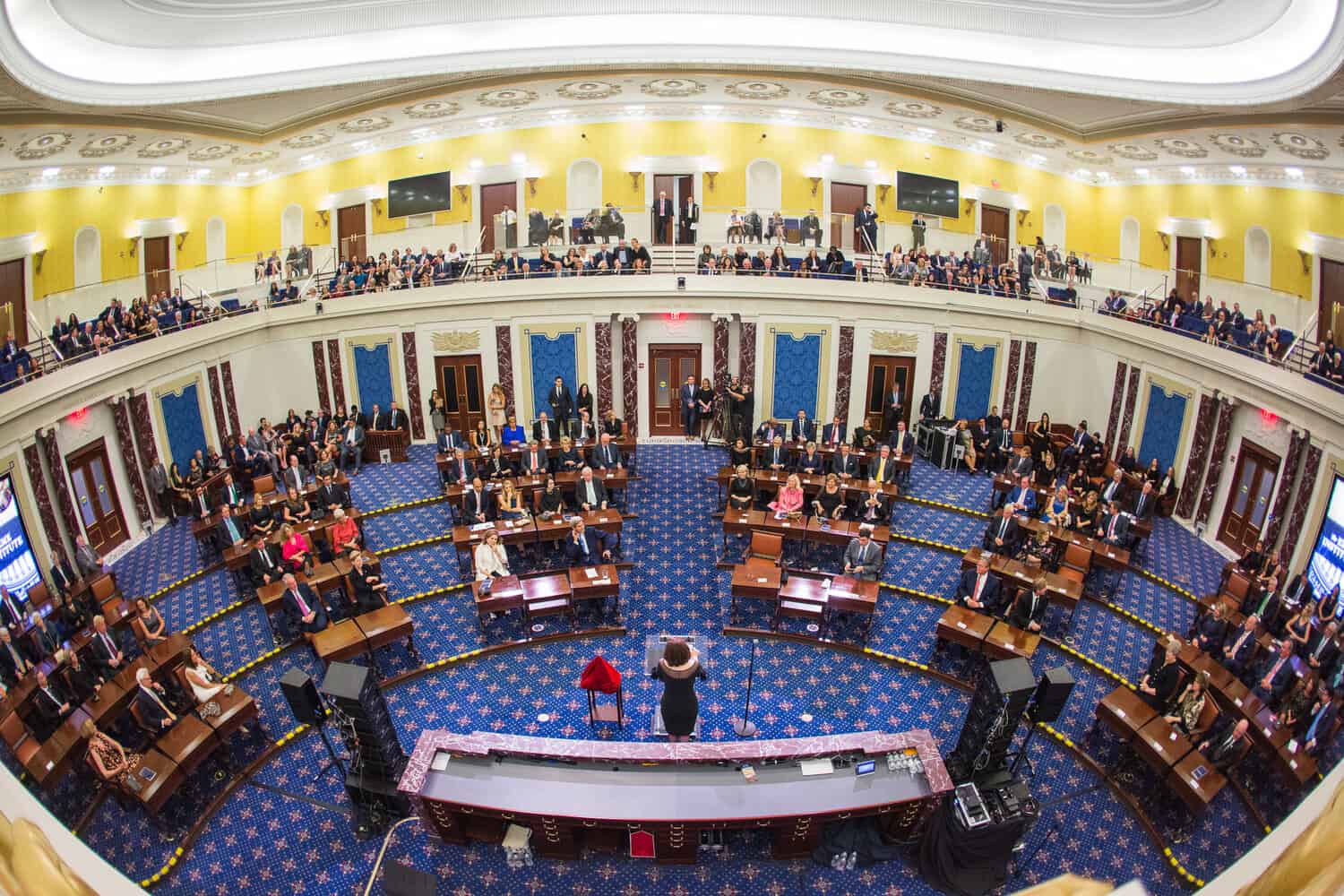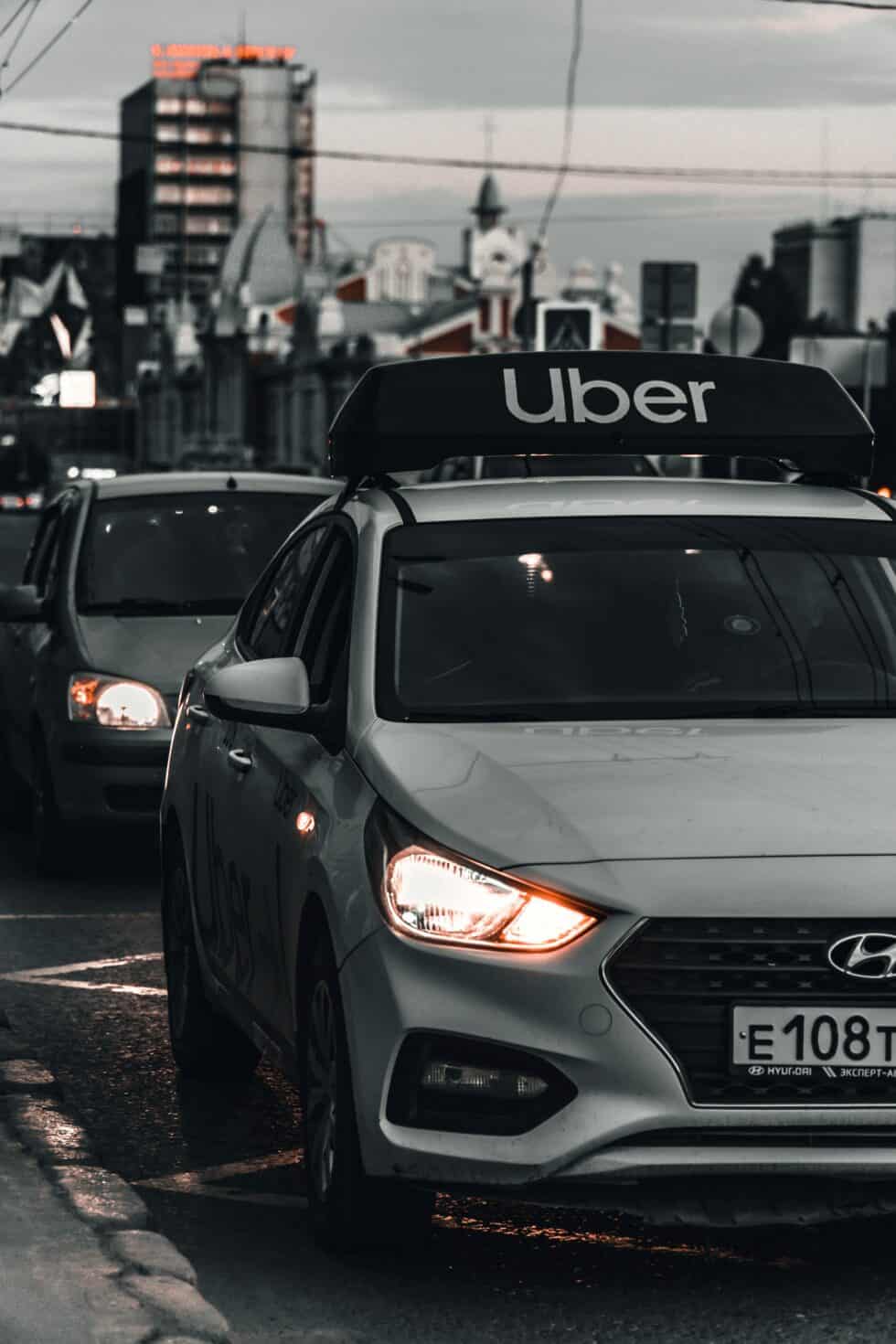
Miriam is a student at Harvard Law School and a member of the Labor and Employment Lab.
In today’s News and Commentary: proposed federal legislation to protect domestic workers, workers written out of a newly passed federal semiconductor production initiative, a potential criminal inquiry at Amazon, union workers find solidarity amid struggle in Ukraine, and unions demand change in Sri Lanka.
Beginning at 10:00 AM today the House Education and Labor Committee is holding a hearing for the Federal Domestic Worker Bill of Rights. National Domestic Workers Alliance Founder and President Ai-jen Poo is to testify at the hearing while domestic worker leaders gather on the Hill to support the proposed legislation. The bill is co-sponsored by Senators Kristen Gillibrand and Ben Ray Luján, and Representative Pramila Jayapal. Domestic workers like homecare providers, nannies, and house cleaners have historically been excluded from basic labor protections. The secluded nature of their work in private homes makes domestic workers vulnerable to exploitation and abuse.
Several pro-worker proposals included in a US House-passed version of a semiconductor incentive bill did not make it into the new, pared-down version of the package just passed in the Senate. Unions and House Democrats pushed for “union neutrality” requirements, extensive prevailing wage mandates, and expanded apprenticeship programs in the version of the bill passed by the house in February. While workforce training is still prioritized in new bill, and some construction projects will still have to meet prevailing wage obligations, it does far less to advance a labor agenda than advocates hoped. The package, worth $280 billion, was framed as part of a broad industrial policy aiming to compete with China.
A current Justice Department investigation into Amazon worker safety could be part of a wider criminal inquiry, labor law scholars told Bloomberg. The investigation could delve into questions of whether Amazon engaged in widespread misreporting of injury and illness rates, criminal and labor law scholars say. The US Occupational Safety and Health Administration (OSHA) and the US Attorney’s Office for the Southern District of New York announced July 22 the start of an investigation and work site inspections based, in part, on complaints received by the prosecutor’s office. Chicago Law School professor Jonathan Masur told Bloomberg Law, “I don’t think the US attorney’s office would become involved unless there was some evidence that there was a pattern of practice of Amazon in concealing information from OSHA, trying to hide its safety record from OSHA, lying to OSHA inspectors over a concerted period of time,” Close collaboration between OSHA and prosecutors is rare, and could bring the case out of OSHA administrative law and into federal criminal law opening the door for larger penalties and a longer statute of limitations than OSHA law allows.
Around the world, with 90 per cent of construction workers out of work in Ukraine, the Construction and Building Materials Industry Workers’ Union (PROFBUD) has launched new services. Efforts include humanitarian assistance and medical support for internally displaced persons, creating shelters in trade union facilities since the beginning of March. The union has also provided financial assistance to unionized workers with tens of thousands having not received a salary since the end of February. Meanwhile, IndustriALL reports that amid war, Ukraine has adopted a new law that erodes protections for workers at small and medium-sized companies over the objections of trade union leaders.
In the wake of uprisings that led President Gotabaya Rajapaksa to resign and flee the country, Sri Lankan unions are demanding constitutional reforms. Economic crisis brought on in part by the pandemic drop in tourism has left Sri Lankans struggling to find food and fuel, and led to a significant decline in export manufacturing. IndustriALL affiliates in the country are demanding the abolishment of the executive presidency, that fuel, gas, and other essential commodities are provided at concessionary rates for workers, and that any agreement made with the International Monetary Fund is made public before an official endorsement, among other demands.






Daily News & Commentary
Start your day with our roundup of the latest labor developments. See all
August 31
Public approval of labor unions has reached a record high and Seattle’s independent contractors have new rights starting this Thursday. A Gallup poll released on Tuesday reports that 71% of Americans support labor unions—the highest approval rating since 1965. The trend toward union support started with the onset of the COVID-19 pandemic.
August 30
The National Labor Relations Board reaffirms prior precedent regarding union insignia at work; AB257 passes the California State Senate; and American University reaches labor deal with striking workers. In a 3-2 decision, the NLRB issued its ruling in Tesla, Inc. on Monday, holding that employer rules banning union insignia are presumptively unlawful absent special circumstances.
August 29
Employers push for an autumn return to the office, and staffing shortages continue to plague the airline industry. As Labor Day approaches, employers are once again pushing for a return to the office. “A number of companies, including Apple, Capital One, Comcast and The New York Times Company, are setting fresh guidelines around returning to the office for September,” the New York Times reported.
August 28
Workers at a Chipotle in Lansing, Michigan became the first to organize one of the chain’s 3,000 locations; U.S. Senator Bob Casey urged the Department of Labor to take action on the use of workplace surveillance technology, including by Amazon; and the U.S. Court of Appeals for the D.C. Circuit said the NLRB must reconsider a ruling over discrimination between unions.
August 26
Teamsters reaches a historic settlement with Universal Intermodal; the Sixth Circuit stays an NLRB injunction ordering reinstatement of the Starbucks “Memphis Seven”; and California considers a bill that would require large employers to submit pay data reports based on sex, ethnicity, and race. Shipping company Universal Intermodal reached a historic settlement with the Teamsters: the company will reclassify its Southern California drayage drivers as employees; will re-open a closed facility in Compton; and will reinstate, with backpay, around 66 workers who were terminated during a unionization effort with the Teamsters.
August 25
The Biden administration released the final version of regulations intended to protect the Deferred Action for Childhood Arrivals (DACA) program against legal challenges on Wednesday. DACA, which originated with a 2012 memo by the Obama administration, offers protection from deportation and the ability to work legally to some 600,000 undocumented young people who came to the US as children. The Biden regulation replaces the Obama-era memo and takes effect Oct. 31. Bloomberg explains that the new regulation comes in repose to legal challenges that have plagued DACA since inception. The final regulation maintains existing criteria for DACA status and the process for seeking work authorization. It will only apply only to DACA renewal requests, not to new applications, because a federal court order barring DHS from granting new requests for status remains in place.